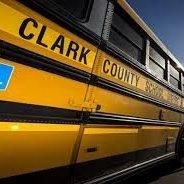Clark County Initiative Overcomes Transportation Obstacles to Boost Student Attendance
Addressing Transportation Challenges to Enhance School Attendance
In Clark County, a significant number of students face daily hurdles in reaching their classrooms due to unreliable or inaccessible transportation. To combat this, the non-profit organization Ride to Learn has introduced a comprehensive program aimed at eliminating these barriers. Collaborating closely with local schools, businesses, and volunteers, the initiative delivers dependable transit options tailored to students who struggle most with commuting.
The program’s core services include:
- Distribution of prepaid transit cards to qualifying students
- Mobilization of volunteer drivers to serve remote and underserved neighborhoods
- Designing bus routes that align with school start and end times
- Providing shuttle transportation during adverse weather conditions
| Service | Service Area | Intended Beneficiaries |
|---|---|---|
| Prepaid Transit Passes | City and Suburban Zones | Students from Low-Income Households |
| Volunteer Driver Network | Rural and Outlying Areas | Students with Special Transportation Needs |
| Weather-Responsive Shuttle Service | Entire County | All Enrolled Students |
Collaborative Community Efforts Enhance Student Commutes
Clark County’s schools and community organizations have united to develop multifaceted solutions that improve student transportation safety and reliability. This partnership leverages the expertise of transit professionals, local leaders, and volunteers to create a robust support system. Initiatives range from optimizing bus schedules to launching “walking school bus” programs, where groups of students walk to school together under adult supervision, promoting safety and social engagement.
Highlighted projects include:
- Increasing bus frequency during morning and afternoon peak times
- Installing pedestrian-friendly infrastructure and deploying crossing guards near schools
- Implementing student-focused carpool and ride-share programs
- Hosting workshops for parents on alternative commuting options and safety
| Initiative | Outcome | Current Status |
|---|---|---|
| Walking School Bus Program | Enhanced pedestrian safety and community engagement | Active |
| Expanded Bus Routes | Shorter wait times and improved punctuality | Implemented |
| Student Carpool Incentives | Reduced traffic congestion near schools | In Development |
Comprehensive Support Services for Families Facing Economic Hardships
Recognizing that transportation is just one piece of the puzzle, Clark County’s community partners have expanded their efforts to provide holistic support to families in need. These programs aim to remove multiple barriers to consistent school attendance by offering essential resources such as school supplies, nutritious meals, and academic assistance.
Available supports include:
- Complimentary shuttle rides for students residing beyond safe walking distances
- Distribution of backpacks filled with necessary educational materials
- Weekly food packages to address child hunger and food insecurity
- After-school tutoring and mentorship programs to bolster academic achievement
Recent data underscores the effectiveness of these interventions:
| Program | Number of Students Served | Attendance Improvement (%) |
|---|---|---|
| Transportation Assistance | 150 | 25% |
| School Supplies Distribution | 300 | 18% |
| Nutritional Support | 220 | 22% |
| Tutoring and Mentoring | 180 | 30% |
Policy Recommendations to Enhance Accessibility and Minimize Absenteeism
To sustainably reduce absenteeism in Clark County schools, policy reforms must prioritize overcoming transportation obstacles and integrating mental health resources within educational settings. Introducing flexible bus schedules and subsidizing transit fares for economically disadvantaged families can significantly improve attendance rates. Furthermore, embedding mental health professionals on campus and forging partnerships with local counseling agencies will provide critical emotional support, addressing absenteeism linked to psychological challenges.
Strengthening communication between schools, families, and community organizations is equally vital. Encouraging active parent involvement programs and implementing early warning systems for attendance issues can facilitate prompt interventions, ensuring students receive the help they need before absences escalate.
| Policy Proposal | Projected Benefit |
|---|---|
| Flexible Transportation Scheduling | Improved punctuality and daily attendance |
| On-Site Mental Health Services | Lower absenteeism due to emotional and psychological issues |
| Enhanced Parent-School Communication | Timely identification and support for at-risk students |
| Subsidized Transit Passes | Financial assistance leading to consistent attendance |
Conclusion: A Path Forward for Clark County Students
As Clark County confronts persistent attendance challenges, the proactive measures spearheaded by local non-profits like Ride to Learn offer promising solutions. By dismantling transportation barriers and providing comprehensive support, these efforts are instrumental in helping students maintain regular school attendance and stay engaged academically. The community eagerly anticipates the long-term impact of these programs on student achievement and overall educational equity.










